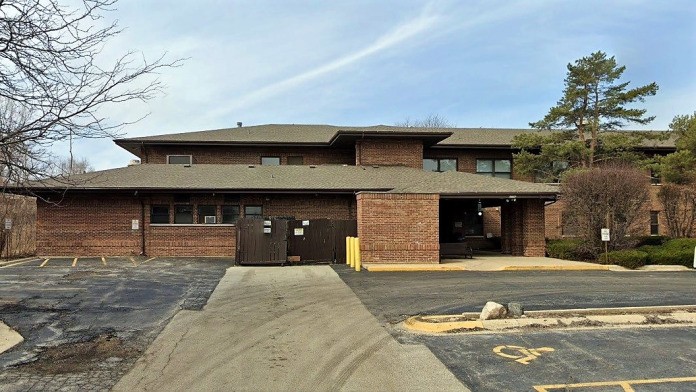The first time I went here, it didn't work because I wasn't committed enough, so I relapsed after a while. The second time I came, I realized that I had to do better with my life and I'm thankful for the support they provided me. They didn't let me down; on the contrary, the ...
About The SHARE Program
SHARE keeps its prices affordable by partnering with insurance providers and offering flexible payment plans. In addition, they accept clients 18 years and older.
Medical detoxification is often the first step in SHARE’s recovery program. Clients stay at the facility while the remaining drugs and alcohol are removed from their system. In addition, they may be given approved medication to help them cope with withdrawal symptoms. Medical staff closely monitor and administer detox, and clients attend support and education groups.
The inpatient program sees clients live at the SHARE facility for the duration of treatment. They work with their care team to develop a treatment plan, creating a highly structured schedule that helps facilitate recovery. Treatment options include individual and group therapy, 12 step programs, recreational therapy, lectures, psychiatric evaluation, and nutritional consultation.
Clients in the outpatient program attend therapy and counseling sessions in person or via Telehealth. They may also be administered Vivitrol for maintenance if an assessment determines that it is appropriate.
MISA is a form of co-diagnosis that addresses mental illnesses that can coexist alongside substance abuse. MISA integrates psychiatric care and specialized case management into inpatient and outpatient treatment.
SHARE recognizes that recovery isn’t complete just because a treatment program ends: it’s an ongoing process. To help support the continuing success of its clients, SHARE provides extensive aftercare services and planning following program completion to give each client a course of action to follow. Aftercare can take place in person or via Telehealth.
SHARE is accredited by the Joint Commission and licensed by the Bureau of Accreditation, Licensure and Certification, and Substance Use Program & Recovery.
Latest Reviews
Rehab Score
Gallery


Accepted Insurance
Other Forms of Payment
Private insurance refers to any kind of healthcare coverage that isn't from the state or federal government. This includes individual and family plans offered by an employer or purchased from the Insurance Marketplace. Every plan will have different requirements and out of pocket costs so be sure to get the full details before you start treatment.
Self-pay involves paying for treatment out of your own pocket. You can use savings or credit, get a personal loan, or receive help from family and friends to fund your treatment. If you don't have insurance or your insurance plan doesn't cover a specific program, self-pay can help ensure you still get the care you need.
Financial aid can take many forms. Centers may have grants or scholarships available to clients who meet eligibility requirements. Programs that receive SAMHSA grants may have financial aid available for those who need treatment as well. Grants and scholarships can help you pai for treatment without having to repay.
Sliding scale payments are based on a client's income and family size. The goal is to make treatment affordable to everyone. By taking these factors into account, addiction recovery care providers help ensure that your treatment does not become a financial burden to you or your family, eliminating one barrier to care.
Medicare is a federal program that provides health insurance for those 65 and older. It also serves people under 65 with chronic and disabling health challenges. To use Medicare for addiction treatment you need to find a program that accepts Medicare and is in network with your plan. Out of pocket costs and preauthorization requirements vary, so always check with your provider.
Medicaid is a state based program that helps lower-income individuals and families pay for healthcare. Medicaid covers addiction treatment so those enrolled can use their coverage to pay for rehab. When a program accepts Medicaid the client often pays very little or nothing out of their own pocket.
Addiction Treatments
Levels of Care
Leyden’s outpatient crisis program provides 24/7 emergency response, onsite evaluations, and referrals to outpatient treatment options. It supports individuals in emotional distress, facilitating access to outpatient detox, therapy, and ongoing addiction recovery services.
This inpatient crisis program offers 24-hour emergency coverage, onsite evaluations, and pre-admission screening for clients needing hospitalization. It ensures immediate access to inpatient treatment for mental health or substance use crises in the Hoffman Estates area.
The program offers 24-hour crisis coverage and post-treatment support, including onsite evaluations and referrals. It helps clients transition from inpatient or outpatient treatment, emphasizing relapse prevention and ongoing recovery planning.
Leyden’s crisis services include referrals to 12-step programs, supporting individuals in emotional distress. The program facilitates access to community-based recovery meetings, fostering peer support essential for sustained sobriety.
Leyden offers crisis response that includes referrals to detox programs, supporting clients in safely managing withdrawal from substances like heroin, fentanyl, or alcohol. The service emphasizes immediate intervention and connection to detox facilities.
Treatments
The program offers crisis intervention and support for individuals struggling with alcoholism, including onsite evaluations and referrals. It emphasizes immediate response to emotional distress, helping clients access appropriate treatment options such as inpatient or outpatient alcohol rehab in the Hoffman Estates area.
Leyden’s drug addiction services provide 24/7 crisis response, onsite evaluations, and referrals to specialized treatment. The program supports clients in emotional distress, facilitating access to inpatient or outpatient drug rehab and detox programs to support recovery from substances like heroin, fentanyl, or marijuana.
This dual diagnosis treatment program addresses co-occurring mental health and substance use disorders through crisis intervention and comprehensive evaluations. It offers tailored support to help clients stabilize and access specialized inpatient or outpatient treatment for both conditions.
Leyden’s crisis services provide 24-hour emergency coverage for individuals experiencing mental health or substance abuse crises. The program includes onsite evaluations, referrals, and pre-admission screening, ensuring clients receive appropriate inpatient or outpatient mental health and addiction treatment.
The facility offers crisis intervention and referrals for opioid addiction, including access to medically assisted detox and inpatient treatment. The program supports clients in emotional distress, helping them safely manage withdrawal and begin recovery from opioid use disorder.
Programs
The adult crisis program provides 24/7 emergency response, onsite evaluations, and referrals, supporting adults in emotional distress. It ensures access to inpatient or outpatient mental health and addiction treatment tailored to adult needs.
Leyden’s young adult program offers crisis intervention and immediate evaluations for individuals in emotional distress. The service facilitates referrals to appropriate outpatient or inpatient treatment, supporting recovery efforts for young adults facing mental health or substance use challenges.
Clinical Services
Cognitive Behavioral Therapy (CBT) is a therapy modality that focuses on the relationship between one's thoughts, feelings, and behaviors. It is used to establish and allow for healthy responses to thoughts and feelings (instead of unhealthy responses, like using drugs or alcohol). CBT has been proven effective for recovering addicts of all kinds, and is used to strengthen a patient's own self-awareness and ability to self-regulate. CBT allows individuals to monitor their own emotional state, become more adept at communicating with others, and manage stress without needing to engage in substance abuse.
Dialectical Behavior Therapy (DBT) is a modified form of Cognitive Behavioral Therapy (CBT), a treatment designed to help people understand and ultimately affect the relationship between their thoughts, feelings, and behaviors. DBT is often used for individuals who struggle with self-harm behaviors, such as self-mutilation (cutting) and suicidal thoughts, urges, or attempts. It has been proven clinically effective for those who struggle with out-of-control emotions and mental health illnesses like Borderline Personality Disorder.
Group therapy is any therapeutic work that happens in a group (not one-on-one). There are a number of different group therapy modalities, including support groups, experiential therapy, psycho-education, and more. Group therapy involves treatment as well as processing interaction between group members.
In individual therapy, a patient meets one-on-one with a trained psychologist or counselor. Therapy is a pivotal part of effective substance abuse treatment, as it often covers root causes of addiction, including challenges faced by the patient in their social, family, and work/school life.
Motivational Interviewing (MI) is a clinical approach to helping people with substance abuse issues and other conditions shift behavior in positive ways. It is more goal-oriented than traditional psychotherapy, as MI counselors directly attempt to get clients to consider making behavioral change (rather than wait for them to come to conclusions themselves). Its primary purpose is to resolve ambivalence and help clients become able to make healthy choices freely.
Trauma therapy addresses traumatic incidents from a client's past that are likely affecting their present-day experience. Trauma is often one of the primary triggers and potential causes of addiction, and can stem from child sexual abuse, domestic violence, having a parent with a mental illness, losing one or both parents at a young age, teenage or adult sexual assault, or any number of other factors. The purpose of trauma therapy is to allow a patient to process trauma and move through and past it, with the help of trained and compassionate mental health professionals.
Research clearly demonstrates that recovery is far more successful and sustainable when loved ones like family members participate in rehab and substance abuse treatment. Genetic factors may be at play when it comes to drug and alcohol addiction, as well as mental health issues. Family dynamics often play a critical role in addiction triggers, and if properly educated, family members can be a strong source of support when it comes to rehabilitation.
Life skills training in Illinois gives you the tools you need to meet daily demands. These fall into three main categories: personal skills, interpersonal skills, and cognitive skills. While in rehab, you'll work on each of these areas as part of your recovery treatment.
Amenities
-
Residential Setting
-
Private Rooms
Staff & Accreditations
Staff
Lorena Engelman
President
Phil Sampogna
Vice President
Kathy Vitello-Fey
Director
Accreditations

The Substance Abuse and Mental Health Services Administration (SAMHSA) is a branch of the U.S. Department of Health and Human Services. Established in 1992 by congress, SAMHSA's mission is to reduce the impact of substance abuse and mental illness on American's communities.
SAMHSA Listed: Yes

State Licenses are permits issued by government agencies that allow rehab organizations to conduct business legally within a certain geographical area. Typically, the kind of program a rehab facility offers, along with its physical location, determines which licenses are required to operate legally.
State License: Illinois

The Joint Commission, formerly known as JCAHO, is a nonprofit organization that accredits rehab organizations and programs. Founded in 1951, the Joint Commision's mission is to improve the quality of patient care and demonstrating the quality of patient care.
Joint Commission Accreditation: Yes
Contact Information
1776 Moon Lake Boulevard
Hoffman Estates, IL 60169




